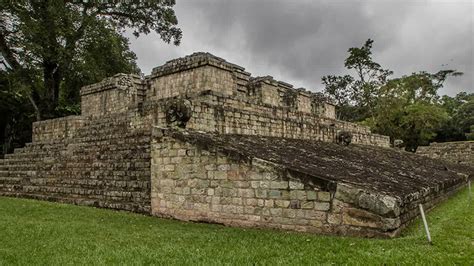Explore the ancient origins, early civilizations, and the formation of the modern state of Palestine. Learn about the British Mandate, Palestinian identity, and the Palestinian-Israeli conflict.
Ancient Origins of Palestine
Contents
History of State of Palestine
The history of Palestine dates back to ancient times, with evidence of human habitation in the region dating back to as early as 7000 BCE. The land of Palestine has been inhabited by various civilizations throughout its history, including the Canaanites, Philistines, Israelites, and many others. These ancient peoples established cities, built monumental structures, and developed complex social and economic systems, leaving behind a rich archaeological legacy that continues to be explored and studied to this day.
One of the most renowned ancient cities in Palestine is Jerusalem, which has been a central hub of political, religious, and cultural activity for thousands of years. The city holds great significance for three of the world’s major religions – Judaism, Christianity, and Islam – and has been a focal point of conflict and coexistence throughout its long history. The ancient origins of Palestine are deeply intertwined with the development of these religious traditions, and the land itself holds immense sacred significance for millions of people around the world.
Throughout the ancient period, Palestine was also part of larger empires, such as the Egyptian, Assyrian, Babylonian, and Persian empires. These imperial powers exerted varying degrees of influence and control over the region, leaving their mark on the local culture, language, and political landscape. The diverse and dynamic history of Palestine in ancient times provides a fascinating glimpse into the interconnectedness of different civilizations and the enduring legacy of human civilization in the region.
In addition to its rich archaeological and historical heritage, the ancient origins of Palestine continue to be a source of scholarly debate and inquiry. The study of ancient texts, inscriptions, and artifacts has shed light on the complex tapestry of cultures and societies that have inhabited the land over thousands of years, offering valuable insights into the formation and development of the region’s unique identity and heritage.
| Ancient Civilizations | Main Contributions |
|---|---|
| Canaanites | Development of early alphabet, trade networks |
| Israelites | Religious and cultural traditions, establishment of kingdoms |
| Philistines | Artistic and architectural achievements, interactions with neighboring powers |
In conclusion, the ancient origins of Palestine are a testament to the enduring vitality and significance of the region throughout the course of human history. The legacy of ancient civilizations, the influence of major empires, and the interplay of religious and cultural traditions have all contributed to shaping the vibrant and diverse tapestry of Palestinian identity and heritage that continues to resonate in the modern era.
Early Civilizations in Palestine
Early Civilizations in Palestine
The early civilizations in Palestine date back to the Bronze Age, around 3000 BCE. This period saw the rise of several city-states in the region, such as Jericho, Megiddo, and Hazor, which played important roles in trade and commerce.
Many of these early settlements were strategically located along major trade routes, serving as vital hubs for the exchange of goods and ideas between Mesopotamia, Egypt, and the Mediterranean. This interaction with neighboring civilizations contributed to the rich cultural and religious tapestry of ancient Palestine.
Archaeological evidence points to the development of advanced urban centers with sophisticated architecture, complex social structures, and elaborate burial practices. The city of Jericho, for example, is renowned for its towering walls and early evidence of agriculture and domestication of animals.
The early civilizations in Palestine were also marked by periods of conflict and conquest, as various regional powers vied for control over this strategically significant land. This constant struggle for dominance shaped the political and military landscape of ancient Palestine and left a lasting impact on its subsequent history.
Formation of Modern State of Palestine
The Formation of Modern State of Palestine is a complex topic that involves a significant amount of political and historical context. The modern state of Palestine emerged as a result of the dissolution of the Ottoman Empire after World War I and subsequent geopolitical shifts in the region. Following the end of the war, the territory of Palestine came under the control of the British Mandate, which lasted from 1920 to 1948.
During this period, the disparate Palestinian population began to coalesce around the idea of national identity and self-determination. The rise of Zionist immigration and aspirations for a Jewish national homeland further complicated the situation, leading to tensions and conflicts between the two groups.
After years of struggle and negotiations, the state of Palestine was formally recognized by the United Nations in 1988, marking a significant milestone in the quest for Palestinian statehood. However, the road to full sovereignty has been fraught with challenges, including ongoing disputes over borders, settlements, and the status of Jerusalem.
Despite these obstacles, the Palestinian leadership continues to pursue diplomatic efforts to secure international recognition and support for the establishment of an independent Palestinian state. The goal of achieving statehood remains a central focus of Palestinian political aspirations, shaping the trajectory of the modern Palestinian national movement.
British Mandate and Palestinian Identity
During the period of the British Mandate in Palestine from 1917 to 1948, the identity of the Palestinian people began to take shape as a distinct national group. The British Mandate over Palestine came about as a result of the defeat of the Ottoman Empire in World War I, and the subsequent division of the Middle East by the Allied Powers. This period was marked by significant changes in the demographics and political landscape of Palestine, as well as the emergence of a Palestinian national identity.
The British Mandate administration implemented policies that affected the Palestinian population, such as land ownership regulations and immigration laws, which had a profound impact on the development of Palestinian identity. The influx of Jewish immigrants, encouraged by the British government, led to tensions between the Palestinian Arab population and the growing Jewish community, contributing to the formation of a distinct Palestinian national consciousness.
Despite efforts by the British authorities to maintain control over the region, the Palestinian people began to organize politically and assert their right to self-determination. This period saw the emergence of Palestinian nationalist movements and the publication of Palestinian newspapers and literature, all of which played a crucial role in shaping the Palestinian identity and fostering a sense of unity among the population.
The British Mandate period was a formative time for the Palestinian people, as they sought to define their national identity and lay the groundwork for the establishment of a modern Palestinian state. The struggle for independence and the preservation of Palestinian culture and heritage during this period continue to influence the Palestinian national identity to this day, as the people of Palestine strive to assert their right to sovereignty and statehood.
Palestinian-Israeli Conflict and Statehood
The Palestinian-Israeli conflict, also known as the Arab-Israeli conflict, has been ongoing for over a century. This protracted and complex conflict began in the late 19th century with the rise of Zionism, a movement seeking to establish a Jewish homeland in the region. The conflict has resulted in numerous wars, acts of terrorism, and ongoing tensions between the Palestinian and Israeli populations.
One of the key issues at the heart of the conflict is the question of statehood for the Palestinian people. Throughout the 20th century, various attempts have been made to address the statehood question, including the United Nations partition plan of 1947, which sought to create separate Jewish and Arab states in the region. This plan was rejected by the Palestinian leadership, leading to further conflict and displacement of Palestinian refugees.
The establishment of the state of Israel in 1948 further exacerbated conflict and heightened tensions in the region. The Palestinian leadership, under the umbrella of the Palestine Liberation Organization (PLO), sought to reclaim territories lost during the Arab-Israeli wars and to establish an independent Palestinian state. This goal has remained elusive, as negotiations and peace talks have faltered due to deep-seated historical, religious, and territorial disputes.
The struggle for statehood has been further complicated by Israeli settlements in the West Bank and East Jerusalem, which have been deemed illegal under international law. These settlements have been a major point of contention between the two sides and have posed significant obstacles to achieving a negotiated settlement. The ongoing conflict has led to significant loss of life and has had profound humanitarian consequences for both Palestinian and Israeli communities.
Despite the deep-seated challenges, efforts to resolve the Palestinian-Israeli conflict continue, with international organizations and diplomatic initiatives working towards a peaceful and just resolution. The quest for statehood for the Palestinian people remains a central and defining issue in the conflict, and its resolution will be crucial for achieving lasting peace and stability in the region.











